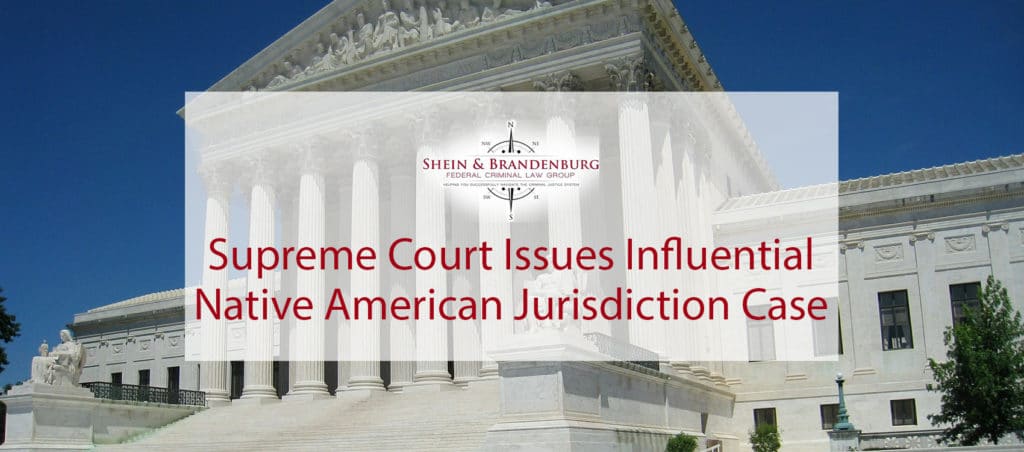Supreme Court Hears Native American Jurisdiction Case
In May of 2018, the United States Supreme Court decided to hear a case about Native American territory and a murder in 1999, which could significantly affect issues involving tribal sovereignty and state legal authority. How this case is decided will have a significant impact on where criminal cases are heard.
How the Criminal Case Arose
The case arose when the state court convicted the defendant of mutilating and murdering his girlfriend’s former love. The defendant later initiated a legal action against the state based on the argument that the federal government instead of the state has jurisdiction over the case because the crime occurred within the tribal territory and the defendant and the man who was killed are members of the Muscogee Creek Nation.
In 2017, a federal appeals court later overturned the defendant’s conviction based on the argument that Congress never dissolved the boundaries of the Muscogee Creek Nation, which have existed before Oklahoma became a state.
What is the Muscogee Creek Nation?
The Muscogee Creek Nation is a federally recognized tribe whose boundaries lie entirely within the state of Oklahoma. Headquartered in Okmulgee, Oklahoma, the Muscogee has previously had its status as a federally recognized group. In 2017, the Tenth Circuit Court held that the Muscogee reservation had not been disestablished and retains jurisdiction over tribes in Oklahoma.
How the Case Could Influence the Law
If the boundaries of the reservation are determined by the court to still exist, the decision would afford other protections to lands that constitute “Indian Territory” and comprise a great deal of the eastern half of Oklahoma. In support of this argument, several business groups including the Oklahoma Independent Petroleum Association and the Environmental Federation of Oklahoma have filed briefs. The prosecution in the case, however, argues that the boundaries no longer exist and as a result, the state’s conviction for murder should be upheld.
Understanding Jurisdiction Issues Involving Tribal Land
This case involves a complicated intersection of issues associated with both federal criminal law as well as tribal law. Tribal jurisdiction refers to the authority of a tribal entity to determine civil and criminal cases. What makes the intersection between state and federal law particularly complicated is that while tribal law sometimes has jurisdiction over the reach of federal law, sometimes both federal and tribal law apply concurrently. More specifically, the law that applies to this case is Section 1153(a) of Title 18 in the United States Code, which holds that any “Indian” who commits one of several types of offenses (including murder) against another Indian or any other person within a reservation is subject to the same laws and penalties as if a person had committed the offense within exclusive jurisdiction of the United States. How the Supreme Court will interpret this law, however, remains uncertain.
Obtain the Services of a Federal Criminal Appeal Lawyer
Jurisdiction is one of the many complicated issues that arise during appeals. If you need assistance with this issue or any other in creating a strong appeal, do not hesitate to contact the Federal Criminal Defense Center today.


